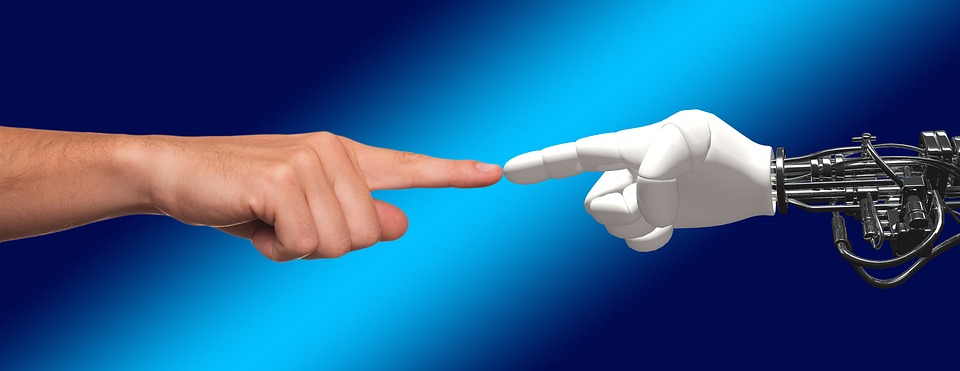By Warren Miller, contributing writer
Earlier this month, researchers at Facebook thought that their chatbots were simply learning to negotiate with one another, but apparently they were also inventing their own language. The chatbots reportedly had to be turned off after their dialogues became incomprehensible to their human overseers. The chatbots weren’t specifically instructed to conduct their negotiations in English, allowing them the opportunity to create a new language for themselves to facilitate negotiations.
Dhruv Batra, a visiting researcher for Facebook’s Artificial Intelligence Research division (FAIR), said of the linguistically creative chatbots: “Agents will drift off understandable language and create code words for themselves … this isn’t so different from the way that communities of humans create shorthands.” The researchers eventually turned off the chatbots, not because they were afraid of the AI getting away from them, but because they weren’t performing in the way that they were expected to. The goal was to eventually teach chatbots to negotiate with humans, not one another.
Could this eventually lead to innovations in human language? The chances are unlikely, being that human languages are first and foremost an oral tradition, whereas this AI language is entirely text-based. Furthermore, the chatbots didn’t appear to be using traditional phrasing or sentence structures. For example, one AI bot (named Bob) would say “i can i i everything else,” to which another bot (named Alice) would reply “balls mean zero to me to me to me to me.” The number of “i”s and “me”s in the dialogue seem to correspond to value somehow, but it would obviously be difficult for humans to follow their logic.
One wonders if the ability of negotiating bots to quickly create a shorthand for communicating will make bot-to-bot transactions quicker and more efficient than bot-to-human transactions. Take, for example, a commodity negotiation for price, quantity, delivery date, and delivery location. A complex trade with several key parameters. Humans would need to read and write using English or some other human language — a slow and laborious process compared to a fully evolved chatbot’s shorthand. The chatbots could very quickly find an advantageous trade, using their lightning speed shorthand, while a human negotiator was still typing in a response to the first offer. The human negotiator wouldn’t be able to close a transaction fast enough. However, if it turns out that human negotiators are making bad trades, maybe the bots would “dumb down” their negotiations to take advantage of the slower humans.
 Image source: Pixabay.
Image source: Pixabay.
Over and above the ability for AI to negotiate, the larger implications of AI creating its own languages are hard to ignore. Facebook isn’t the first company to encounter this phenomenon. Earlier this year, Google’s translate tool developed its own language that it would translate words in and out of. Google allowed this to continue and is still studying the results.
If AI intelligence can create languages that human beings are incapable of understanding, what’s to stop them from discretely collaborating to execute more complex agendas? James Cameron’s Skynet-created dystopia seems to be coming closer and closer to reality with each passing day.
Advertisement
Learn more about Electronic Products Magazine





